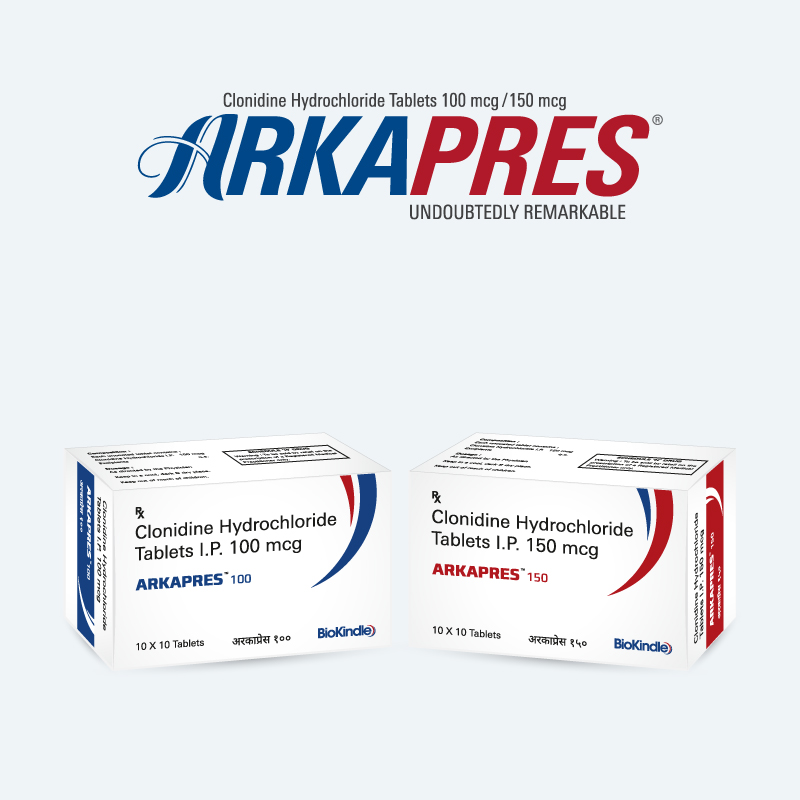ARKAPRES is Clonidine Hydrochloride Tablets available in two strengths of 100 mcg & 150 mcg. Clonidine hydrochloride is a centrally acting alpha-agonist hypotensive agent available as tablets for oral administration. Clonidine stimulates alpha-adrenoreceptors in the brain stem. This action results in reduced sympathetic outflow from the central nervous system and in decreases in peripheral resistance, renal vascular resistance, heart rate, and blood pressure.
ARKAPRES

COMPOSITION:
Clonidine Hydrochloride Tablets IP 100 mcg/150 mcg
MODE OF ACTION:
Clonidine stimulates alpha-adrenoreceptors in the brain stem. This action results in reduced sympathetic outflow from the central nervous system and in decreases in peripheral resistance, renal vascular resistance, heart rate, and blood pressure. Clonidine hydrochloride tablets act relatively rapidly. The patient’s blood pressure declines within 30 to 60 minutes after an oral dose, the maximum decrease occurring within 2 to 4 hours. Renal blood flow and glomerular filtration rate remain essentially unchanged.
INDICATIONS
Clonidine hydrochloride tablets, USP are indicated in the treatment of hypertension. Clonidine hydrochloride tablets may be employed alone or concomitantly with other antihypertensive agents.
DOSAGE
Adults: The dose of Clonidine hydrochloride tablets USP must be adjusted according to the patient’s individual blood pressure response. The following is a general guide to its administration.
Initial Dose: 0.1 mg tablet twice daily (morning and bedtime). Elderly patients may benefit from a lower initial dose.
Maintenance Dose: Further increments of 0.1 mg per day may be made at weekly intervals if necessary until the desired response is achieved. Taking the larger portion of the oral daily dose at bedtime may minimize transient adjustment effects of dry mouth and drowsiness. The therapeutic doses most commonly employed have ranged from 0.2 mg to 0.6 mg per day given in divided doses.
Renal Impairment: Patients with renal impairment may benefit from a lower initial dose. Patients should be carefully monitored. Since only a minimal amount of Clonidine is removed during routine hemodialysis, there is no need to give supplemental Clonidine following dialysis.
DISCLAIMER
This information is for the medical professionals & registered medical practitioners only. This product must be consumed with the valid prescription of registered medical practitioners.*Images/Pack are for representation purpose only.